Mitsui Chemicals, Inc. has established the “Mitsui Chemicals Catalysis Science Awards” since 2004 with the aim of contributing to the sustainable development of chemistry and the chemical industry. In particular, this award is designed to recognize researchers who have made outstanding achievements in catalysis science.
- Home
- R&D
- Mitsui Chemicals Catalysis Science Awards
- The Winners of the “Mitsui Chemicals Catalysis Science Awards”
The Winners of the “Mitsui Chemicals Catalysis Science Awards”
The winners of the awards are as follows:
* Assignments and positions are those at the time of receipt of awards.
The Winner of the “Mitsui Chemicals Catalysis Science Award”
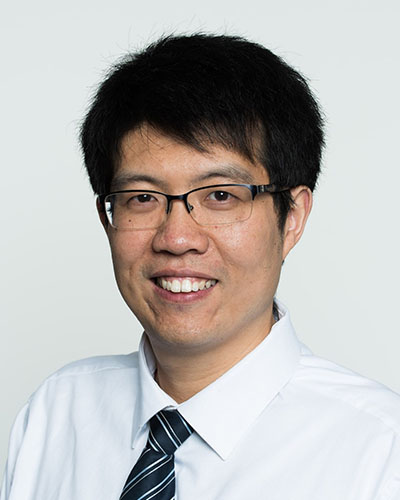
Guangbin Dong
Weldon G. Brown Professor of Chemistry University of Chicago
"Revolutionary development of the catalytic carbon-carbon bond activation, the palladium/norbornene cooperative catalysis and carbonyl functionalization methods, enabling streamlined and efficient organic synthesis"
Dr. Guangbin Dong has established an original and creative research program in the development of new catalytic methods for the activation and subsequent functionalization of inert chemical bonds. In particular, his work on catalytic C–C bond activation, palladium (Pd)/norbornene cooperative catalysis, and atom-efficient carbonyl functionalization has had a significant impact on synthetic chemistry. These innovative research achievements have contributed to the development of green chemistry processes and have the potential to make a significant impact in fields such as pharmaceutical and natural product synthesis.
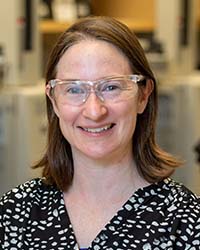
Melanie S. Sanford
Professor University of Michigan
"Developing late transition metal catalyzed reactions for carbon-carbon and carbon-heteroatom bond formation"
Dr. Melanie S. Sanford has developed late transition metal catalysts for C-H functionalization reactions. She is a pioneer and has had a major impact on research in her field. She has also developed palladium and copper catalysts for fluorination and radiofluorination reactions, and written seminal studies of their mechanisms. She also developed Pd and Ni catalysts for base-free decarbonylative cross-coupling reactions. Alternative to aryl halides, carboxylic acids and their derivatives have been used as electrophiles in the reactions. She has contributed greatly to the development of catalysis science.
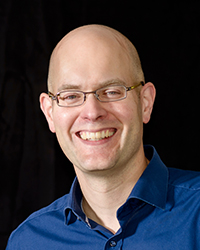
Frank Glorius
Professor University of Münster, Germany
"Development of Chemo- and Enantioselective Arene Hydrogenation and of Additional Tools for Improving Synthesis"
Dr. Frank Glorius has developed various catalysts for efficient synthetic organic reactions. Focusing on N-heterocyclic carbene (NHC), Dr. Glorius realized selective arene hydrogenation using metal-NHC complexes, and also applied NHC ligands to nanoparticle catalysts. Furthermore, he has made remarkable achievements in the development of catalysts for C-H bond activation, and also has developed original visible light photoredox catalysts and organocatalysts. Recently, he has been successful in methods for smart data generation and machine learning. These wide-ranging studies have contributed greatly to the development of catalysis science.
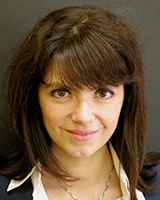
M. Christina White
Professor University of Illinois
"Site-Selective Aliphatic and Allylic C—H Oxidations for Late-Stage Functionalization"
Dr. M. Christina White has made pioneering contributions to the development of catalytic allylic and aliphatic C—H oxidations. Previously, substrates required directing groups to achieve selective C—H oxidations. However, she found that site-selectivities could be altered through the appropriate modification of transition metal catalysts for late-stage functionalization of complex molecules, which is a promising synthetic strategy at the forefront of chemical and pharmaceutical sciences.

Shannon S. Stahl
Professor University of Wisconsin - Madison
"Catalysts for Selective Aerobic Oxidation of Organic Chemicals"
Dr. Shannon Stahl is a pioneer in aerobic oxidation catalysis. His work has demonstrated general catalytic strategies to use air or molecular oxygen in the selective oxidation of organic molecules, including fine chemicals and pharmaceuticals, and has illuminated the fundamental mechanistic principles underlying these reactions.
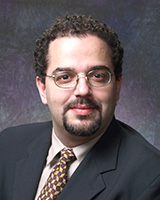
F. Dean Toste
Professor University of California Berkeley, U.S.A.
"Introduction of Concepts and Catalysts for Organic Synthesis, including those based on Homogeneous Gold Catalysis and Chiral Anion Catalysis"
Professor Toste has pioneered the development of novel catalysts with gold complexes, high-valent metal oxides, and chiral counteranions including: (a) homogeneous low-valent gold catalysts; (b) high-valent metal oxide catalysts; and (c) chiral counteranion-assisted asymmetric metal-free phase-transfer catalysis. More recently he has developed metal catalyst-fermentation hybrid processes for the synthesis of biofuels and chemicals from biomass.
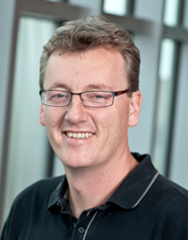
David W. C. MacMillan
Professor Princeton University
"Development of Organocatalysis"
Prof. David W. C. MacMillan has developed the concepts of “Organocatalysis”, especially for asymmetric synthesis, and realized environmentally benign nonmetallic catalysts that have a practical value and play a central role in the organocatalysis field.
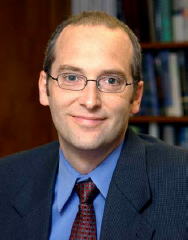
John F. Hartwig
Professor University of Illinois
"Development of New Practical Catalytic Reactions Including Efficient C-H Bond Activation and Coupling Reactions"
Prof. Hartwig made pioneering contributions to catalytic carbon-hydrogen bond activation, one of the unsolved challenges in catalytic science, and realized new types of transformations including highly efficient coupling reactions, especially with deep understanding of reaction mechanisms.
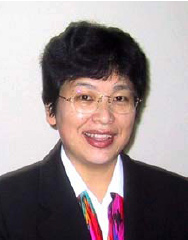
Kyoko Nozaki
Professor The University of Tokyo
"Development of Novel Catalytic Reactions for Coordination Copolymerization of Polar Monomers"
Prof. Nozaki realized innovative catalytic reactions for coordination copolymerization of olefins with polar monomers, which is an important topic of catalyst science, through accumulated basic studies of reactions mechanisms.
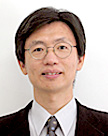
Zhaomin Hou
Chief Scientist RIKEN
"Development of Polymerization Reactions Based on New Organo Rare Earth Metal Catalysts"
Dr. Zhaomin Hou has discovered the regio-, stereoselective polymerization and copolymerization of a wide range of olefins and dienes by use of new organo rare earth metal catalysts, thereby opening up the path to new polymer materials.
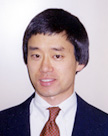
Gregory C. Fu
Professor Massachusetts Institute of Technology
"Coupling Reactions and Asymmetric Synthesis Based on Novel Catalyst Designs"
Prof. Gregory C. Fu developed new designs for chiral catalysts that are based on planar-chiral asymmetry, and he greatly expanded the scope of coupling reactions.
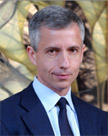
Eric N. Jacobsen
Professor Harvard University
"General Asymmetric Catalysts for Oxidation, Hydrolysis, and C-C Bond-forming Reactions"
Prof. Eric N. Jacobsen has formulated several key principles in asymmetric catalysis; these principles can be applied in industrially important target molecules.
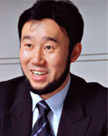
Shu Kobayashi
Professor The University of Tokyo
"Development of Novel Catalysts Directed toward Environmentally Benign Organic Synthesis"
Prof. Shu Kobayashi has developed new organic reactions using water as a solvent, by inventing the water-stable Lewis acid, which indicates a new direction for environmentally benign research for processes.
The Winners of the "Mitsui Chemicals Catalysis Science Award for Creative Work"
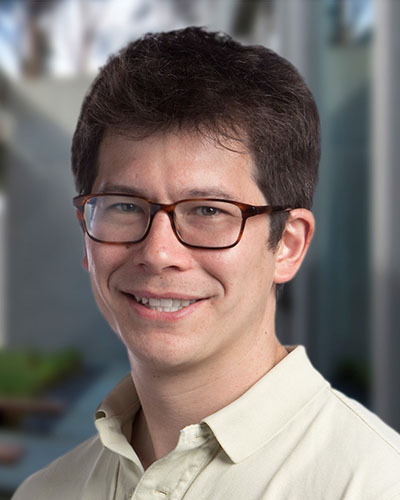
Keary M. Engle
Professor The Scripps Research Institute
"Discovery of selective, predictable, and modular alkene functionalization methods and the development of widely used organometallic precatalysts"
Using unique catalysis based on nickel (Ni) and palladium (Pd), Dr. Keary M. Engle has achieved innovative functionalization of unactivated alkenes, including 1,2- difunctionalization, C(alkenyl)-H functionalization and conjunctive crosscoupling. These highly controlled reactions are facilitated by specially designed directing groups or, in some cases, even in their absence. Many of the novel Ni(0) precatalysts developed by his group have been commercialized and are now widely used in various catalytic applications. These achievements are recognized as significant contributions to the field of catalysis science.
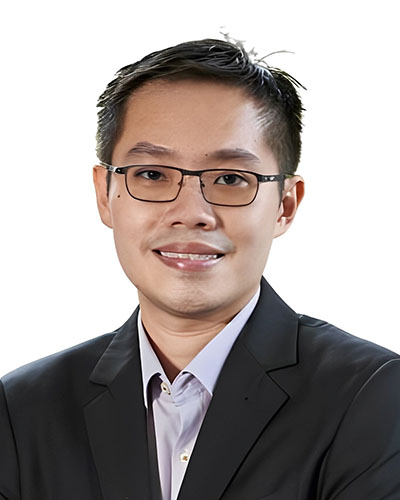
Ming Joo Koh
Associate Professor National University of Singapore
"Developing base metal catalysis and radical chemistry for sustainable organic synthesis"
Dr. Ming Joo Koh has developed directing group-free selective cross-coupling and functionalization reactions of alkenes catalyzed by complexes of earth abundant metals such as iron (Fe), nickel (Ni), and copper (Cu). Furthermore, he has also expanded his research into C-glycosylation using Fe- and Ni-catalysts and has succeeded in synthesizing a variety of unique sugar derivatives. Further developments are expected in future.
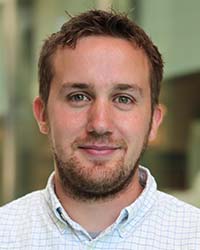
Todd K. Hyster
Associate Professor Cornell University
"Photoenzymatic catalysis in organic synthesis"
Dr. Todd K. Hyster has developed a new biocatalytic method to achieve highly efficient radical asymmetric synthesis by combining visible light activation of cofactors at the active site of enzymes, opening a new field that combines organic and biological chemistry. He has recently succeeded in asymmetric intra- and inter-molecular C-C bond coupling, thereby expanding the versatility of the methodology he has developed. His developments are expected to bolster environmentally friendly manufacturing processes of fine chemicals using enzymes.
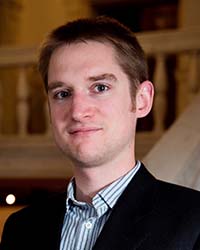
Robert J. Phipps
Associate Professor University of Cambridge
"Development of novel strategies for selectivity control in catalytic reactions"
Dr. Robert J. Phipps has developed meta- and para-selective C-H activation and cross-coupling reactions, as well as asymmetric C-H activation reactions, by a reaction design based on an ion pairing interaction between transition metal catalysts and substrates. Furthermore, the ion pairing strategy was successfully applied to enantiocontrol of radical reactions, demonstrating its synthetic utility.
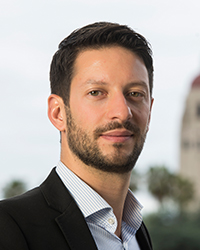
Matteo Cargnello
Assistant Professor Stanford University, U.S.A.
"Use of Well-Defined Materials for the Preparation of Catalysts Aimed at the Sustainable Production of Fuels and Chemicals, and Environmental Protection"
Dr. Matteo Cargnello has elucidated the relationship of catalytic activity with catalyst structure with a far greater precision than before and thus significantly contributed to the progress in heterogeneous solid catalysis science. In particular, his achievements include: (i) the lifetime elongation of Pd-CeO2 catalysts in methane combustion by devising core-shell structures; (ii) the demonstration of the correlation between a catalytic activity and a metal-oxide interface length; and (iii) the deactivation of a metal catalyst due to its single-atom dispersion in exhaust gas treatment catalysis.
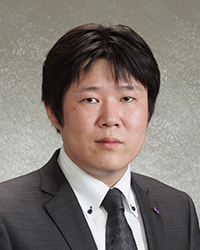
Takanori Iwasaki
Associate Professor The University of Tokyo, Japan
"Cooperative Catalyses of Transition Metal Anion and Typical Metal Cation"
Dr. Takanori Iwasaki has developed various synthetic organic reactions using cooperative catalysts with transition metal anions such as Co, Cu, Rh, Fe, Ni, and Ir and typical metal cations such as Mg, Li, or Zn. He has demonstrated that these complexes act as key catalytic intermediates in various catalytic C-C bond forming reactions and can cleave strong chemical bonds such as C-O and C-F bonds.
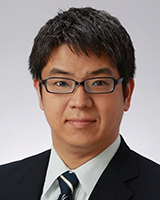
Kounosuke Oisaki
Doctor The University of Tokyo
"Chemoselective Transformations by Radical-Conjugated Redox Catalysis: From Functional Small Molecules to Biomacromolecules"
Dr. Kounosuke Oisaki has examined the applications of radical-conjugated redox catalysis, which is the combination of one-electron redox catalysts with organoradicals, for selective organic transformations, and has demonstrated that this approach is applicable to even complex biomacromolecules, such as proteins.
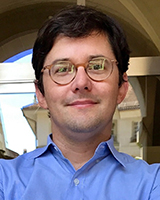
Robert R. Knowles
Professor Princeton University
"Proton Coupled Electron Transfer in Organic Synthesis"
Dr. Robert R. Knowles has pioneered of the “Proton-Coupled Electron Transfer” (PCET) with photoredox catalysis for the generation of synthetically useful radicals, and thereby established a new vista of high impact and versatility in organic synthesis. In particular, his creative contributions include the extensive development of Ir(III) photocatalytic systems that effectively induce oxidative or reductive PCET for the synthesis of fine chemicals and complex natural products.

Neil K. Garg
Professor University of California, Los Angeles
"Breakthroughs in Non-Precious Metal Catalysis and Harnessing Catalytic Transformations in Total Synthesis"
Dr. Neil Garg has made seminal contribution to organic synthesis through the development of new efficient synthetic reactions related to heterocyclic compounds including natural products by exploiting non-precious metal catalysis and highly strained molecules.
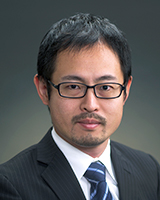
Shingo Ito
Assistant Professor The University of Tokyo
"Polymer Synthesis Based on Innovative Retrosynthesis"
Dr. Shingo Ito has developed new catalysts and new reactions for the synthesis of functionalized polymers based on a concept “innovative retrosynthesis”: (a) phosphine–sulfonate palladium and related catalysts for α-olefin–polar alkene copolymers; (b) “Ping-Pong Polymerization”, an iterative and alternating allylation and hydroformylation to give vinyl alcohol–ethylene alternating copolymers; and (c) o-arylene (co) polymers from “arene equivalents” (oxabicyclic alkenes).
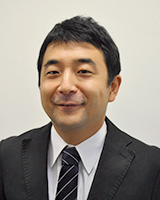
Shunsuke Chiba
Associate Professor Nanyang Technological University, Singapore
"Development of Single-Electron-Transfer Redox Catalytic Systems for Synthesis of Azaheterocycles"
Dr. Chiba has developed unique molecular transformations based on single-electron-transfer oxidation-reduction (redox) in the copper-catalyzed aerobic oxidation and in the manganese-catalyzed radical reactions and thereby paved a way to synthesize azaheterocycles, a family of nitrogen-containing heterocyclic compounds that are widely used in medicine, agriculture, and materials science.
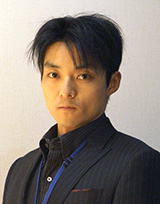
Naoya Kumagai
Chief Researcher Institute of Microbial Chemistry, Japan
"Development of Cooperative Asymmetric Catalysts and their Application to the Streamlined Enantioselective Synthesis of Pharmaceuticals"
Dr. Kumagai has developed novel cooperative asymmetric catalysts with soft Lewis acid/hard Brönsted base and rare earth metal/hydrogen-bonding ligand combinations and thereby achieved the highly efficient enantioselective synthesis of a variety of pharmaceuticals and related chemicals.
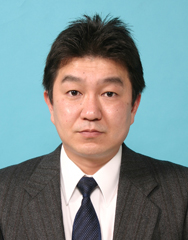
Kazuya Yamaguchi
Associate Professor The University of Tokyo
"Development of Highly Active Heterogeneous Catalysts Based on the Properties of Metal Hydroxides"
Dr. Kazuya Yamaguchi has introduced new molecular design concept in the field of Heterogeneous Catalysts, and clarified that an efficient organic synthesis can be achieved by supported ruthenium hydroxide catalysts. This was realized with well-known materials by his excellent point of observation, and will be widely used in the future.
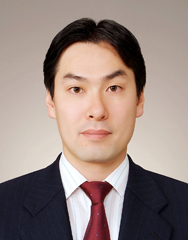
Hideki Yorimitsu
Associate Professor Kyoto University
"Development of Palladium-Catalyzed Regio- and Stereoselective Allylation of Organic Halides with Homoallyl Alcohols"
Dr. Hideki Yorimitsu has achieved an efficient cross-coupling reaction by palladium catalysts with skillfully designed neutral molecules such as homoallyl alcohols in place of commonly used active organometal compounds. This method is regarded as a breakthrough in the field of environmentally benign catalytic science.
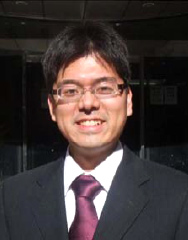
Shigeki Matsunaga
Lecturing Professor The University of Tokyo
"Development of Multimetallic Asymmetric Catalysis through Chiral Ligand Design"
Dr. Matsunaga demonstrated the validity of the idea that catalytic reactions can be controlled by multimetallic catalysts, leading to useful organic compounds.
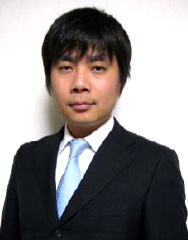
Yoshiaki Nakao
Assistant Professor Kyoto University
"Development of Cooperative Metal Catalysis for C-C Bond Forming Addition Reactions"
Dr. Nakao realized new carbon-carbon bond forming addition reactions through the cooperative action of nickel catalysts with Lewis acid catalysts.
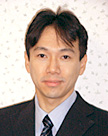
Jun Terao
Assistant Professor Osaka University
"Carbon Bond Formation Reactions Using Anionic Transition Metal Complexes as the Key Catalytic Intermediates"
Dr. Jun Terao has established that anionic olefin transition metal complexes are useful as new catalysts for carbon-carbon bond formation reactions including coupling reactions and addition reactions, thereby opening up a new field in organic synthesis.
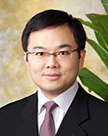
Michael C. W. Chan
Assistant Professor City University of Hong Kong
"Importance of Weak Attractive Polymer-Ligand Interactions in Olefin Polymerization Catalysis"
Dr. Michael C. W. Chan experimentally demonstrated the feasibility of weak attractive polymer-ligand interactions and their significance in olefin polymerization processes, and thereby presented new guidelines for the design of polymerization catalysts.
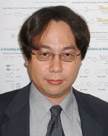
Ryoichi Kuwano
Associate Professor Kyushu University
"Development of New Asymmetric Catalysis and Transition Metal-Catalyzed Reactions"
Associate Prof. Ryoichi Kuwano has developed a new chiral phosphine ligand, whose trans-chelation property was essential for the high degree of chirality.
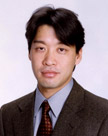
Kenichiro Itami
Assistant Professor Kyoto University
"Removable Directing Group Strategy in Metal Catalysis"
Dr. Kenichiro Itami has developed removable directing groups, particularly in palladium catalyzed reaction and has succeeded in enhancing the efficiency of organic synthesis.
- Home
- R&D
- Mitsui Chemicals Catalysis Science Awards
- The Winners of the “Mitsui Chemicals Catalysis Science Awards”
